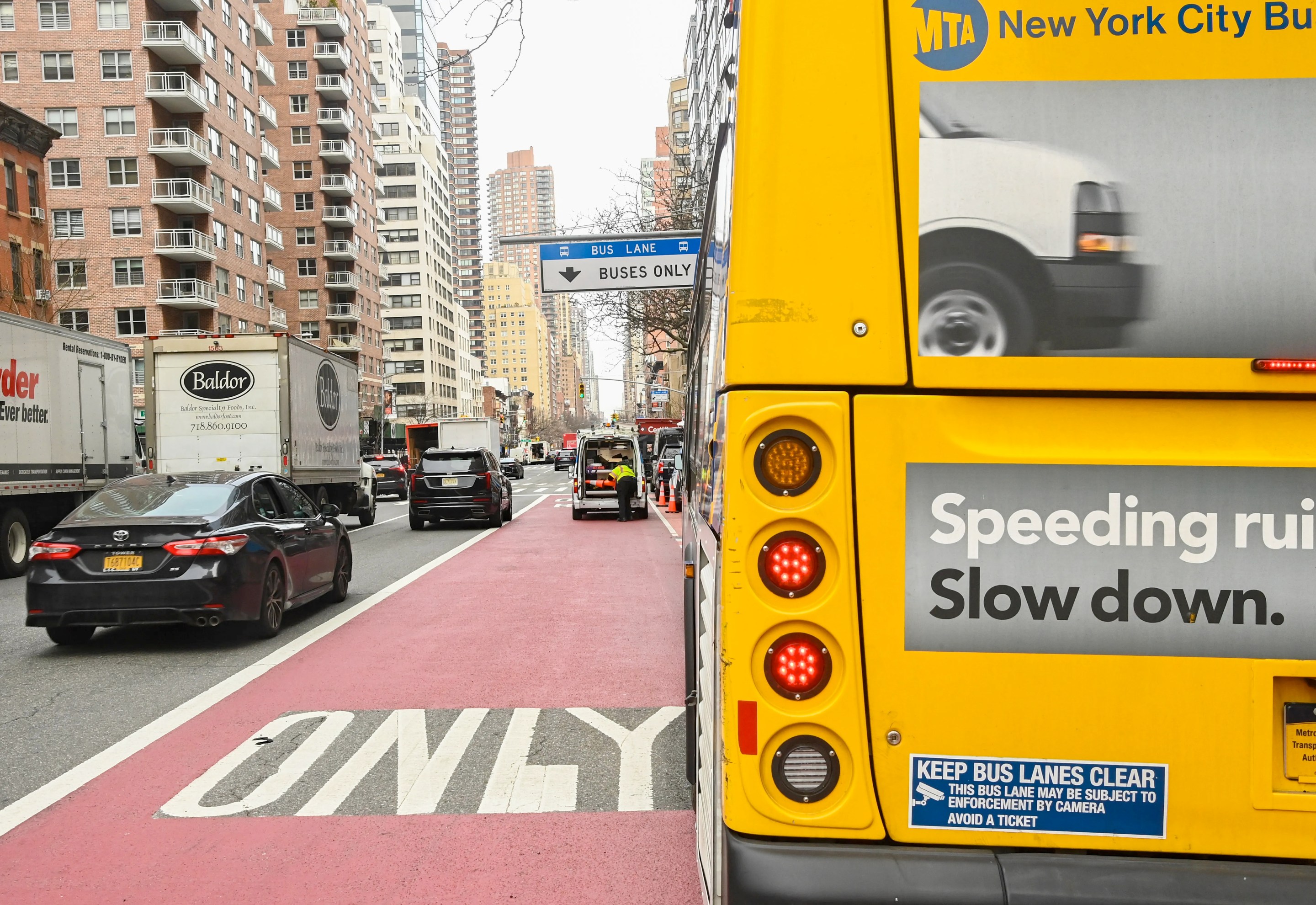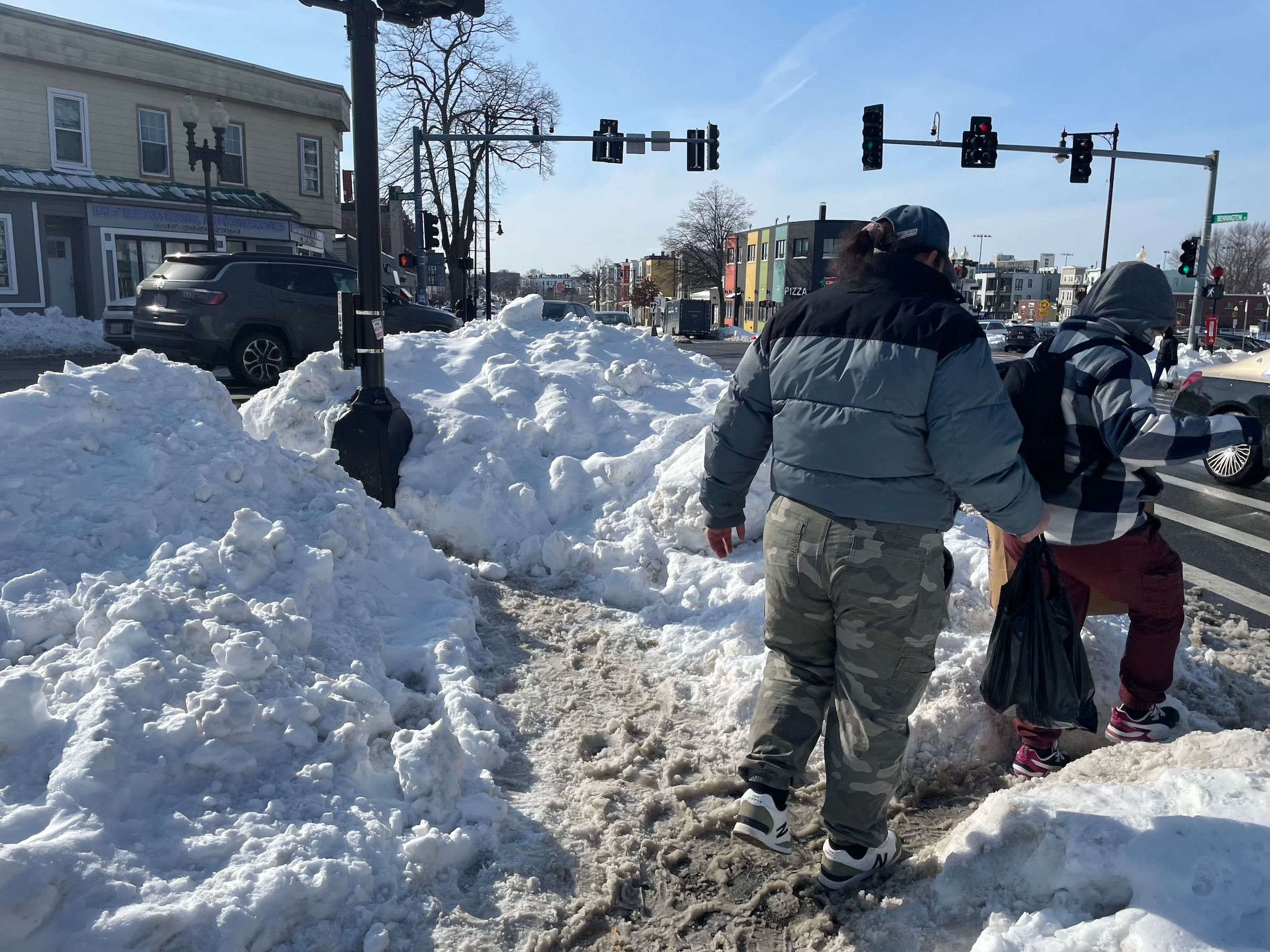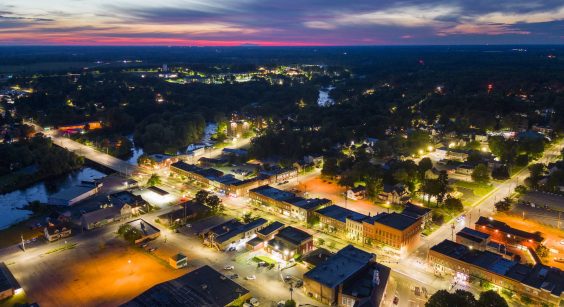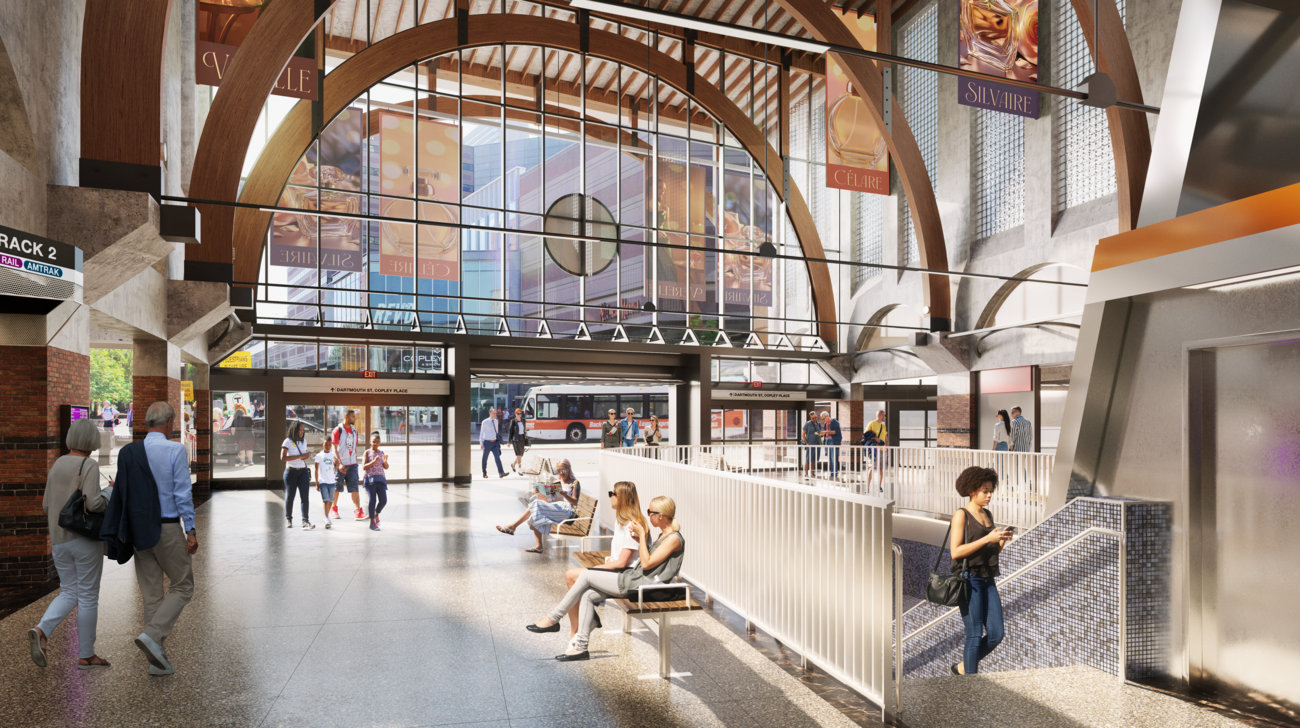For the third year in a row, lawmakers are attempting to legalize automated traffic enforcement cameras that would slap speeding drivers and red-light runners with $25 fines.
The latest attempt, House bill 3383, describes itself as a "pilot" program that would allow only 10 cities and towns across the Commonwealth to install cameras on school buses and roadsides, with a limit of one roadside camera for every 2,500 residents.
"I think the time has really come for Massachusetts to join the 26 other states that allow some sort of automated traffic enforcement," said bill sponsor Rep. Steven Owens of Watertown at a legislative hearing Monday afternoon.
However, the current legislation has one notable omission: while it would allow cameras on school buses, it makes no mention of cameras for public transit buses.
MBTA bus service plans rely on clear bus lanes
MBTA officials have said that their plans for expanded, faster bus service will rely on an expanded network of bus lanes across the region to prevent more frequent-running buses from getting bogged down in traffic on its highest-priority bus routes.
The MBTA's most recent procurement for new electric buses also specified "the installation of a License Plate Recognition system on MBTA buses," apparently in anticipation of legislation that would let the T send fines to vehicle owners who block dedicated bus lanes.
New York City's MTA has used similar technology to enforce bus lanes since the end of 2019, and an evaluation of the program concluded that routes with cameras got 5 percent faster and saw a 25 percent decline in crashes.
Rep. Owens told StreetsblogMASS that his bill doesn't mention transit buses because he expects the MBTA and the Healey administration to file their own bill to deal with bus lane enforcement.
"I had considered including that or filing something separately, but deferred to the administration," Rep. Owens wrote in an email to StreetsblogMASS on Monday.
StreetsblogMASS also reached out to the Governor's office and to the MBTA to confirm whether the administration does intend to file its own legislation. As of publication at 4:30 p.m. on Monday, we had not yet heard a response.
Civil liberties guardrails
An increasing body of evidence suggests that automated enforcement cameras can be significantly more effective than police officers at encouraging safer driving behavior – and they can do so without the threats of violence that characterize police traffic stops.
Owens's bill includes numerous civil-liberties guardrails for computerized camera cops:
- A maximum fine of $25 – which Rep. Owens noted is cheaper than an ordinary parking ticket in many cities;
- A prohibition against capturing "a frontal view photograph of a motor vehicle committing a camera enforceable violation" – only photographs of the rear ends of vehicles can be used for fines;
- A prohibition against putting automated enforcement fines on anyone's motor vehicle operating record;
- A requirement that cameras "shall only take photographs when a camera enforceable violation occurs" and that "recorded evidence shall be destroyed" within 48 hours of the violation's resolution;
- Limits on when camera footage can be used in court proceedings, including an outright prohibition on using footage that captures the front of any motor vehicle;
- A requirement that MassDOT submit an annual report to the Legislature on "the public safety, traffic congestion, and social and racial equity impacts" of automated enforcement systems.
Stacy Thompson, the executive director of the LivableStreets Alliance, testified in favor of the bill at Monday's legislative hearing. She says that LivableStreets will only support the bill if these civil liberties guidelines remain in place (disclosure: Thompson is also a member of the StreetsblogMASS Board of Directors).
"We’re very picky – if the protective provisions about racial profiling and the level of fines in this bill get stripped away, we would not support it," Thompson told StreetsblogMASS after the hearing.
Thompson also observed that the state already uses cameras to enforce toll payements on highways like the Tobin Bridge and Massachusetts Turnpike.
"There are already cameras on buses and trains surveilling people, and there are cameras that send people bills in the mail for their highway tolls," said Thompson. "We have automated toll enforcement, but this bill does a much better job of protecting privacy."






